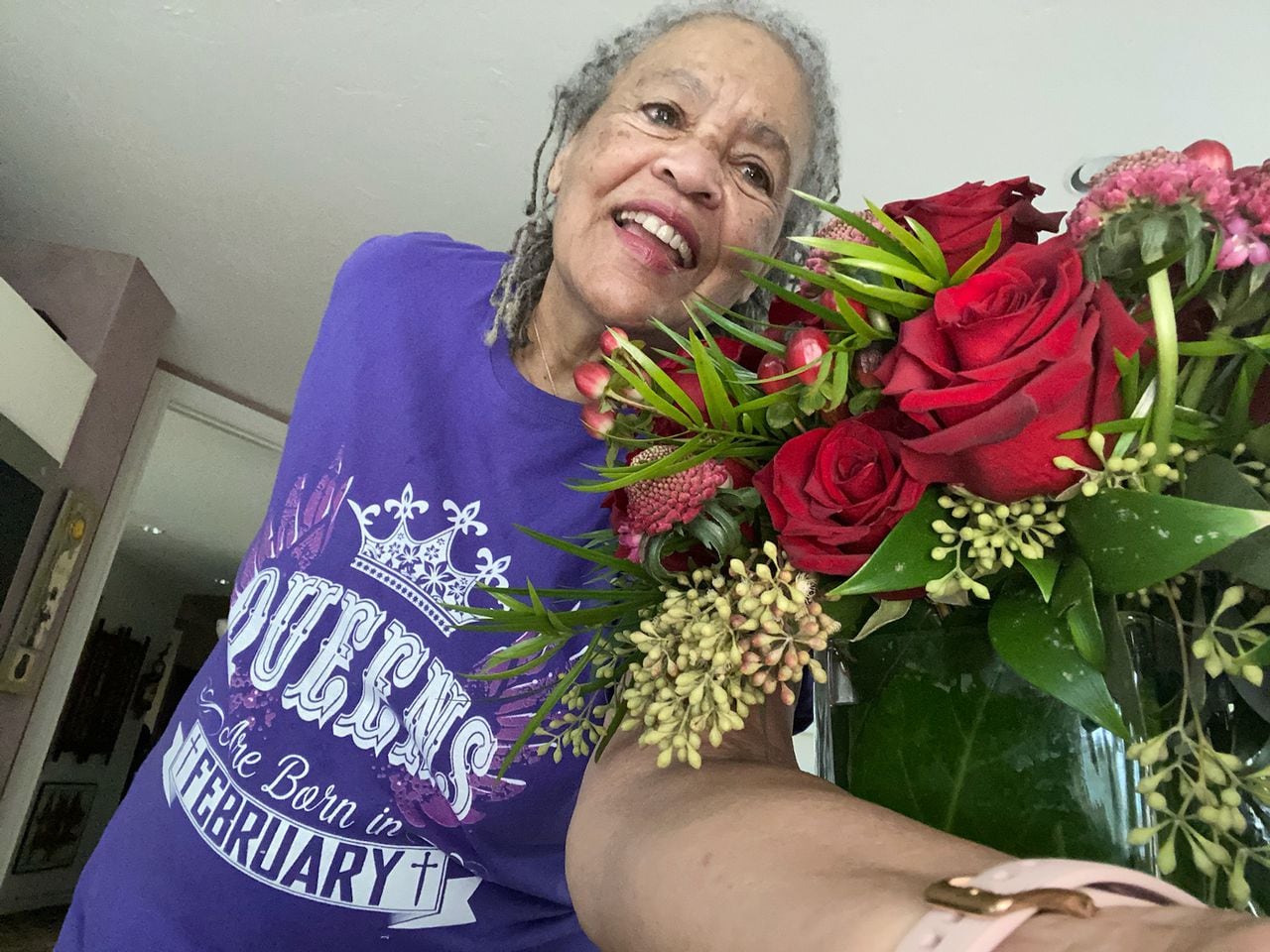Roy S. Johnson: Charlayne Hunter-Gault reflects on anniversary of UGA attacks
This is an opinion column.
She was covered by a crown and scripture, so Charlayne Hunter was not scared.
She was, fact is, more annoyed that the brick some racist white student at the University of Georgia hurled through her dorm window 63 years ago, on this very day—January 11, 1961—left glass strewn all over her clothes. Clothes still neatly folded in a suitcase because Charlayne hadn’t yet unpacked, having arrived just two days prior with Hamilton Holmes and enrolled as the institution’s first Black students.
Now the esteemed, award-winning journalist Charlayne Hunter-Gault, she still laughs at her youthful indignation, sharing it as fruit of an upbringing when Black parents and grandparents, steadfast and defiant, refused to allow the Jim Crow’s seeds of indignity to be sown into their children.
“We grew up raised to be very proper young people,” Hunter-Gault shared with me this week, “and there were the good clothes I was gonna have to wear to class full of glass.”
The crown covering her during those tumultuous days in the winter of 1961—two years before George Wallace stood defiantly (and futilely) at the door of Foster Auditorium trying to prevent Vivian Malone and James Hood from integrating the University of Alabama—was figurative. Yet very real.
A crown was awarded to her in the fourth grade following an annual fundraiser when families collected money for the all-Black elementary school in Covington, Georgia to, as Hunter-Gault put it, “make up for the deficits caused by segregation.”
“We got hand-me-down textbooks from the white schools, often with pages missing. And we didn’t have decent food to eat. We had pig-ear sandwiches and pork skins for lunch.”
The child whose family raised the most would be crowned king or queen.
“My mother and grandmother went all over Covington, Georgia, to all my uncle’s girlfriends—he had a lot of them. That’s another story. they raised something like $117 and I got to be crowned queen.”
Charlayne loved that crown. Loved it so much she wore it to school every day. “Until my girlfriends got so pissed at me, they threatened to beat the you-know-what out of me if I didn’t take off that crowd, so I took off the crown, but the notion that I was a queen took up residence in my head.”
Look at the photos. At the black-and-white images on January 9, 1961, as Hunter and Holmes strode onto campus surrounded by Charlayne’s mother, Althea; famed attorneys Horace Ward and Vernon Jordan; and Atlanta businessman Alfred (Tup) Holmes, an amateur golfer whose family had successfully fought segregation in the sport in the city.
Look at Hunter’s expression. Look at the calm. Calm amid a storm of racial invectives hurled at the group by young whites.
“Students were yelling the n-word, and ‘Go home,’” Hunter-Gault remembered. “I was looking around for the who they were talking about because I knew who I was. I was the queen. So, there was no way they could have been yelling at me. It’s that kind of preparation for life that our people provided for us.”
The scripture covering Charlayne on that day 61 years ago—Psalm 23—was among many learned under the directive of her grandmother in Florida, where grandfather was an AME preacher. Where Althea Hunter sent her daughter every summer.
Yea, though I walk through the valley of the shadow of death, I will fear no evil….
On the night the brick crashed through her dorm window, state troopers scooped up Hunter and Holmes drove them back to Atlanta. (Only female students were required to live on campus; Holmes was with a Back family not far away). The pair was “suspended”—”for their own safety,” UGA lamely declared—though the action was quickly overturned by a court and they returned to classes.
Reporters found Holmes and Hunter at Althea’s home in Atlanta. “They wanted to know how frightening it was,” Hunter recalled “Now, I was much more vocal than Hamilton. [Holmes died in 1995.] He was smarter than me, but I was more vocal. I said, ‘I wasn’t frightened.’ They said, ‘Why not?’
She paused.
“It goes to what is so important today about teaching our history.”
Our history as African Americans. Our history as descendants of parents and grandparents, aunties and uncles who refused to allow the Jim Crow’s seeds of indignity to be sown into their children.
As people who must now not allow the viruses of division, misinformation, attacks on history, on DEI, on our Black women to be sown into, well, anyone.
Yea, though I walk ….
“That has stayed with me all these years,” said Hunter-Gault, now 81. “No matter the circumstances, I fear no evil. When people say, ‘These are really rough times, how could you be hopeful?’ Because of our history. Surely, I was protected [at UGA] by what my grandmother in Florida taught me.
“Our history teaches us to be hopeful. I’ve seen us survive and conquer. I keep my hope alive because of our history.”
Because of our crowns. And scriptures.
If you didn’t know, now you know.
I’m a member of the National Association of Black Journalists Hall of Fame and a Pulitzer Prize finalist for commentary. My column appears on AL.com, as well as the Lede. Tell me what you think at [email protected], and follow me at twitter.com/roysj, or on Instagram @roysj
